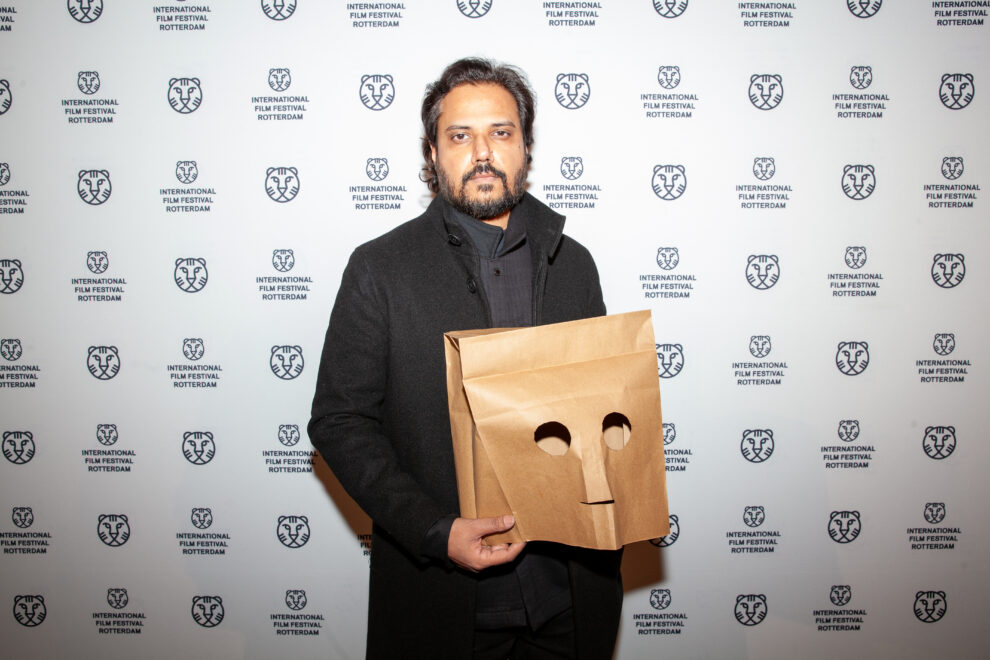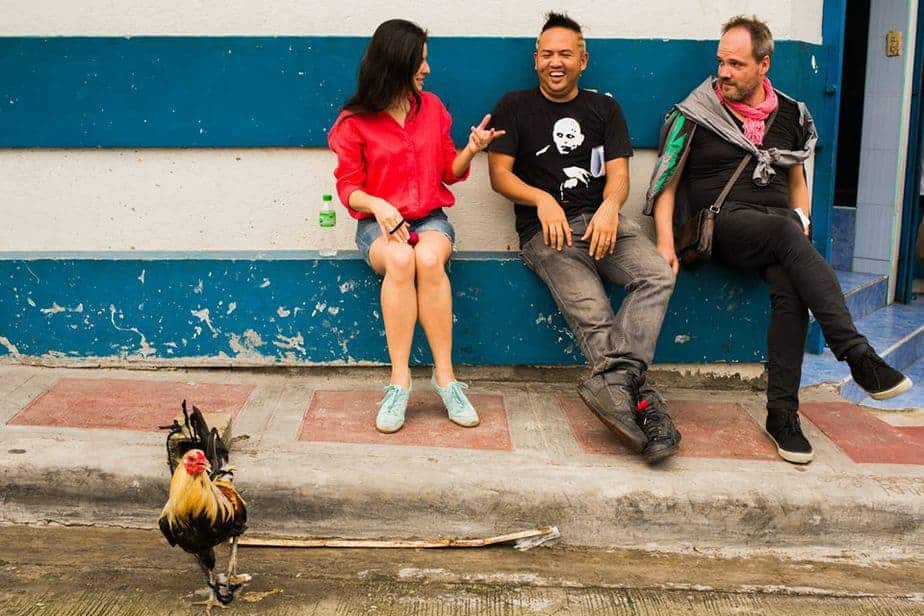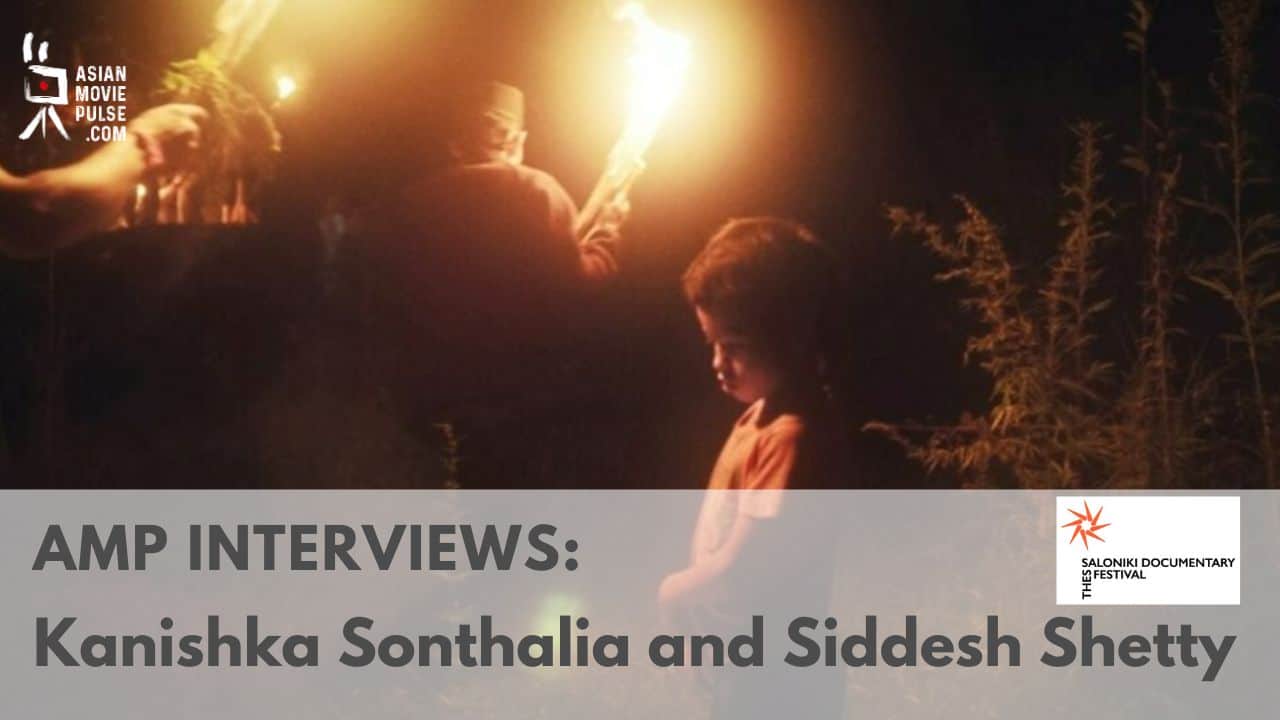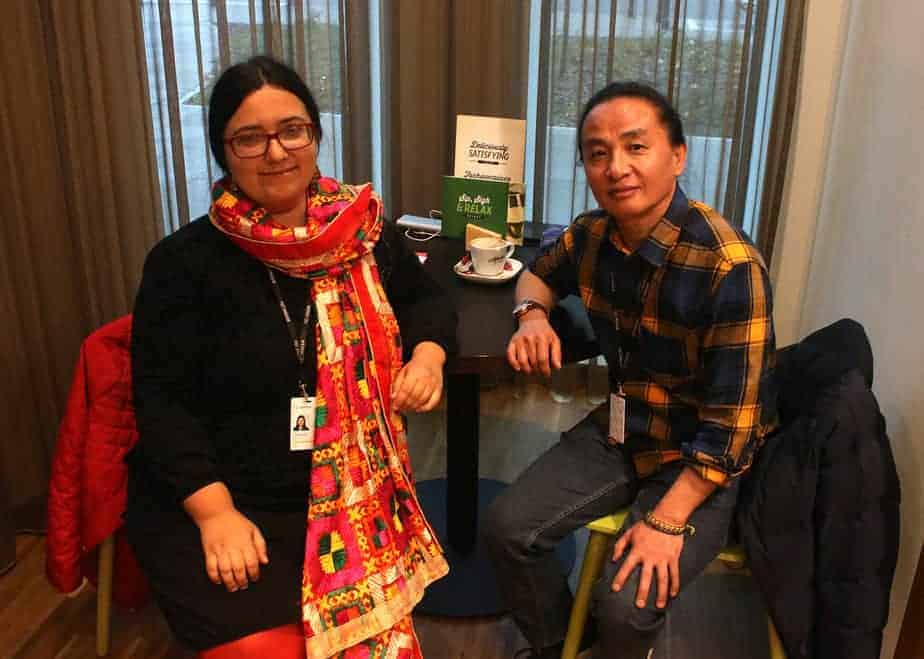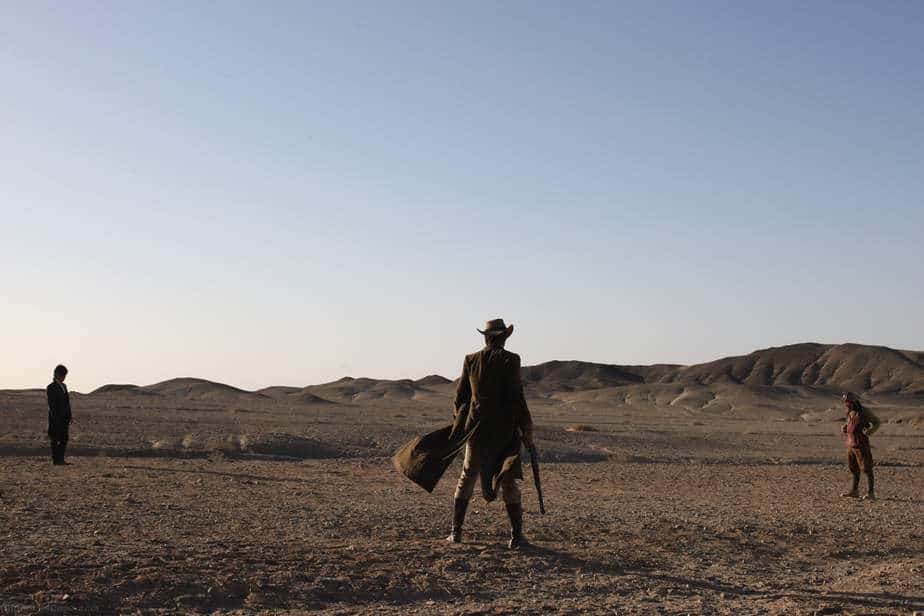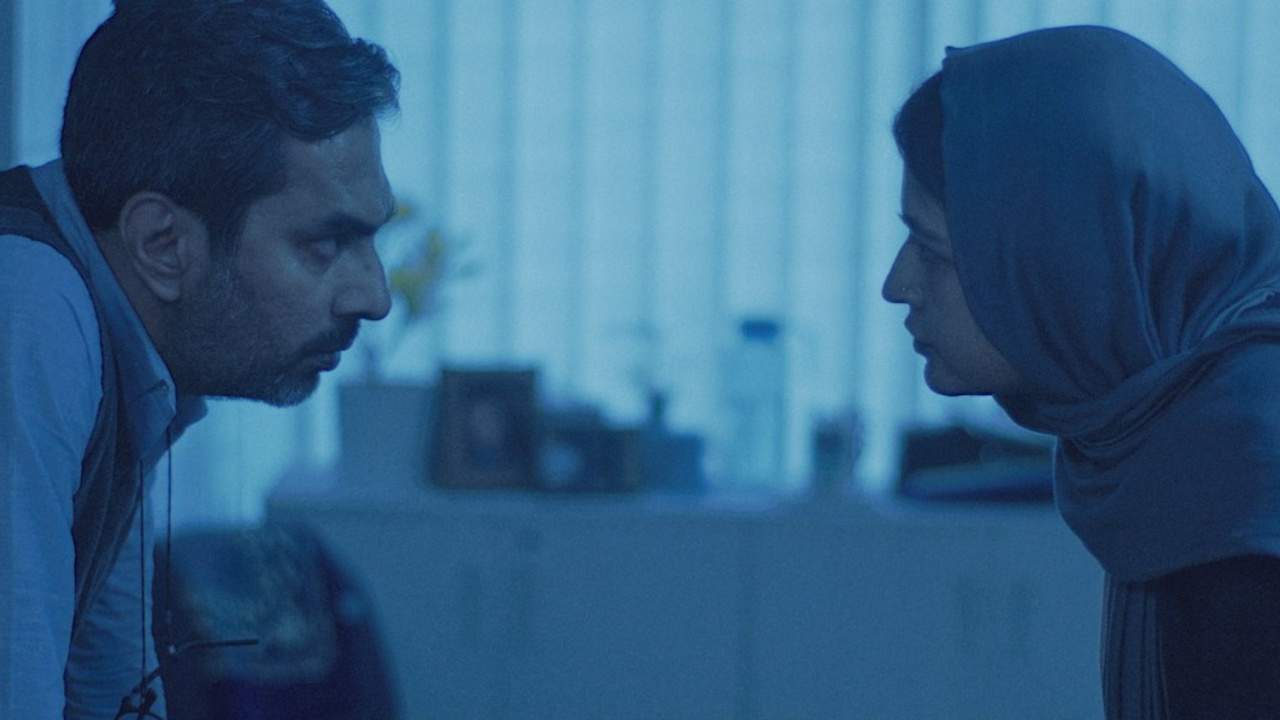Ishan Shukla worked for several years in the Singaporean animation industry before he returned to India where he completed his first short film “Schirkoa” single-handedly. The film which marked the introduction to his eponymous dystopian world, received over 30 awards internationally, and became the first Indian short animation to get long listed for the Academy Awards. The director founded his own animation studio Red Cigarette Media to fully dedicate himself to deeply personal animated feature films aimed at both an arthouse and broad adult audience. Ishan Shukla has previously directed Sci-Fi short “Kalki” (2013) and “The Bandits of Golak”, one of the short stories from the Lucasfilm anthology series Star Wars: Visions Volume 2 (2023).
We spoke to the director ahead of the world premiere of his first feature animation “Schirkoa: In Lies We Trust” ahead of its world-premiere at Rotterdam International Film Festival where it won the NETPAC Award.
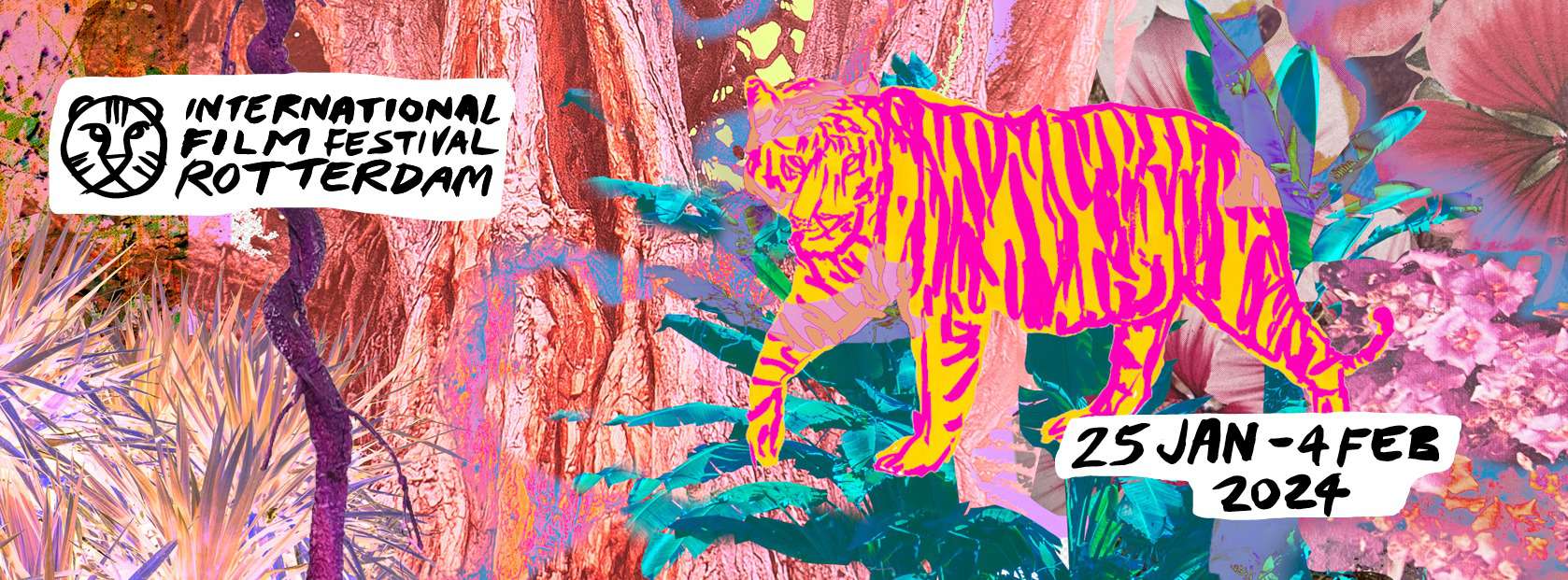
You are attracted to dystopian worlds. You debut short “Kalki” (2013) was set up in a world damaged by oil wars, and then your multiple-awarded short “Shirkoa” (2016) that served as a source for your feature “Schirkoa: In Lies We Trust” followed. What is so fascinating about surreal settings?
Basically, I come from a family of artists. My father used to direct theatre plays, and he had a lot of books that I read when I was a kid. There are a lot of connections to comic books, but I was also very much interested in the literature that my father was reading. And at a very early age, I started reading Tolstoy, Gorki, and Greek and Indian mythology. For me, the most attractive part of that was how civilizations rise and fall. I was pretty much into that. Later on, even at college when I started doing my own plays and writing my own stories, my whole intention was always to find not just an individual rising and falling, but what is really happening to a civilization or a society. What are the catalysts that make them and break them? I was very much inclined to that. Some movies inspired me, and some of the games inspired me.
Later, while I was working as an animator in Singapore, I was definitely getting inspired by the onbeat boredom of daily life. But at the same time, I was also reflecting the world events. For instance, when I started writing “Schirkoa” it was the rise of Arab Spring which happened around the same time in 2011. It had quite an impact on me when I was reading about it. Very soon, the war in Syria started. And then in 2014, we had a new political party in India which kind of changed India in a very significant way. It was a rise of something new, very absolute. I was talking to my friends living in Hong Kong who were reporting about rapid changes that were taking place. So, a lot was happening and I was trying just to reflect my own readings into the history of civilizations, but at the same time, I was trying to bring all that into the story that I was creating. Yes, the literature has initially inspired me, but then I started mixing it with the events around me and all over the world.
Let's talk about Epic Games and the Unreal Engine, which is something that no one has used for filmmmaking purposes before, and your decision to take that road to create your feature animation.
While I was working on “Schirkoa” the short, it was basically created single-handedly by myself on my computer at my home studio. That was a very long marathon which also required a lot of maneuvers. When I begun to think that that was a script that could grow into a feature film, and that the world I imagined and out on the paper, other questions came my way. Like, how will I even produce it? It very much looked impossible, technically, and it came with larger pressure. I had a lot of crowds, lot of new visual styles, so it very quickly became evident to me that I would have to find a new technology in order to pull this film off If I had to have a small team, and a small project. We had a lot of world building, lots of crowds, lot of new visual styles that we were playing with. So it very quickly became evident to me that I will have to find a new technology in order to pull this film off, with a small budget. And then I delved into Unreal Engine, I played games, and I also dealt with how it really works in the background, technically, how it really creates games. So, when Unreal Engine came out in 2016, I played a lot with it, and I realized that it was actually possible to create movies with it.
I realized that it wasn't just for games and that I could actually use it for my own purpose. So, I started speaking to them, and trying to get some technical support explaining that I wanted to use the engine in a certain way. I asked for specific plug-ins, and if they could write some for me, and stuff like that. There was a lot of chat involved, and they also became excited because that was something new back in 2018-2019. They were offering grants for the next generation of professionals in animation, and I submitted this project and they loved it as well, because it was huge technically in terms of how far animation films could go. It was a huge technical leap in terms of how far indie animation films can really go. So, Epic Games gave us the grant, and also a lot of technical support.
And then I continued playing with the Unreal Engine. Now where we are with “Schirkoa: In Lies We Trust” is actually something which I think will be the next industry standard in making animation movies, because we as artists, filmmakers, what we ultimately need is not the technical mumble jumble, we want complete freedom to change things. Animation is a very lenient medium. If you move ahead in the pipeline, you can not change something back. You can not go back because lot of money and people are involved. So, real time animation which we call Unreal Engine gives much more power to the creatives like me who are jacks of all trades and who also want to think the project through until its very end.
Let's talk about all the creative names you give to things. The leading party of baddies is called “intellectuals”, and the outcasts are “anomalies”. Tell us something about the language used in Schirkoa.
“Intellectuals” is a term used in many different ways. For me, it was just something to make sure that these were the people who built society at a very early age. Sometimes people perceive it as communism. For instance in India, whenever someone is called intellectual, it's basically the 1980s people who were communist in the Soviet era. So, that is the one background of it, but there are others. I wanted to make understood that these are the figures behind the scenes who are more sophisticated, and are the elite who run this puppet show. So people call the rulers intellectuals as if they themselves don't have their own intellect. In the early version of “Schirkoa: In Lies We Trust”, in the graphic novel, there was a tagline written in front of the parliament, that ‘Wise alone shall speak'. So, it is something like: “Can a Shirkoa really speak? Only the wise one should.” I thought, if the wise people speak, they speak in such manner to make the citizens think about them as sophisticated, as those with the highest IQ. The Schirkoa believe that they can not even perceive what the wise are talking about. It is not in their IQ, they can not handle it. Which happens a lot around politicians. You have these guys appearing during the elections to talk about their program, and people start to chatter about it. I attended many of such events. When citizens try to understand what they are told, they usually stay clueless. So, politicians are giving speeches that no one can really perceive but we should vote for that guy. It's that kind of thing.
Regarding the God “Lord O”, that was a very simple thing. Whenever a religion really starts, and I am talking about such that spans hundreds or even thousands of years, it always kicks off with something extremely simple. When I was pondering about the name for Schirkoa God, I thought it should just be a numeral or a letter from the alphabet, and that it shouldn't be beyond it. And then I thought that I should use something that can be interpreted in multiple ways, which is what happens to prophets and gods.
We have so many religions which kind of branch out after a few hundred years, and then there are also multiple sects and subsects inside of a religion, and even they fight among themselves just because there was a minor misinterpretation at various stages of that religion. So, I just wanted to really simplify that idea very quickly. That is how I came to the idea of using an alphanumerical zero to name a God, and let it deliberately be misenterprated for a letter. This is how I was creating all those names. Like, are they sophisticated? Can I call them intellectuals? Or if it is God, can they be misinterpreted in a certain way? Okay, let's call them Alphabet or an alpha numeric value. Yeah, stuff like that. Really.
Let's also addres the fact that the citizens were turned into numbers, which calls for multiple interpretations.
Numbers is something I think we are really moving into as a society, as civilizations. People are data sets now. And at the end of the day, when you turn into a data set, you lose your individuality. I wanted to portray that on your face. And when I say “on your face”, I mean it literally. A person's name would be that person's security identification number, or medical insurance number, that person's driving licence, any of those. There won't be ambiguity of any kind anymore. And the nuḿbers, at the end of the day, are completely replaceable. The Schirkoans are all replacable. There were many versions of the script, and there was a point when I was thinking that when 197A really goes to another city and doesn't come back to Schirkoa, I had an idea that he would still be working in his office. Since everyone is wearing a bag over their heads, the intellectuals would just replace him with another guy, because he is known only as a number. The idea with he numbers is great because it makes the individuals invisible and who is behind them doesn't matter. It can be anyone inside and nobody really cares about it. So that's really the lingering idea of numbers, that numbers are replaceable. People behind them don't matter.
Maybe it's just my interpretation, but the fact that everybody is wearing a mandatory bag over their heads, comes from the saying that the politicians never show their real face, and they were the ones who introduced the practice.
That's possible, and it's a great interpretation. There are many ways of looking at it. One is what you just mentioned. The second is – if you wear a face for a very long time, it ultimately becomes your own. Intellectuals, or the founders really, have been running the country for the longest of time. If they were the people who found face masks/bags, maybe they just wore them for so long that they became their faces. Even if you remove them, you were never see their true face. That's another way of looking at it.
I have to move to a very unoriginal question that probably every single journalist will ask you, and it's about your stellar cast, beginning with Asia Argento, Golshifteh Farahani, Soko, Lav Diaz, Gaspar Noe, just to name a few. How did you come to them, and was it easy to win them for the project?
No, no, nothing is easy, obviously, when you're making your first film. But I'm very thankful, because I had wonderful partners on this project. I met my French co-producer at the film bazaar in Goa in 2019. I pitched this project to her, and she was one of the very few people who understood what I was trying to do. When we started developing the script, she begun to suggest some really remarkable but very original names which I never thought could became part of the voice cast. One of the first names she threw at me was Gaspar Noe, and I told her that he is literally the reason I am making films.
I was fascinated by cinema because of Gaspar Noe. At that time I was not even an animator. I just watched his films and thought “oh, this is the potential of the cinema, and how far it can go.” So yes, I was definitely thrilled when she approached him and presented him the project, and to my complete surprise, pleasure and happiness, he said yes to voice acting in “Schirkoa: In Lies We Trust”. That started the chain of some really fortunate events. She also suggested Golshifteh Farahani and Soko, the musician. They were all considered for very different reasons. Soko has an amazing voice and a charming quality to it, and Golshifteh is not just a fine actress but also a great human being, and what she represents at the same time. All actors were very similar in a way to what they represent in real life. When she suggested those names, and when she approached them, they were fortunately very gracious and generous. They gave us their time, and came to Zoom call rehearsals and also they delivered exactly what we needed with their interpretations and improvisations during both rehearsals and recordings.
Ultimately, there is this character called Poet who appears in the later part of the film. We casted Lav Diaz for that role. Again, that was a fascinating choice because Lav Diaz is not just a filmmaker, he is a wonderful poet as well. As you know, because you've seen the film, Schirkoa is a multicultural and multilingual film. We brought in the actors with their own cultures and languages. So, we didn't even want to change anything here. Among the poems Lav had written we chose a few, and we asked him to recite those in the Tagalog language which came out beautifully. And then, my other co-produced Stephan Holl from Germany, suggested Asia Argento and King Khan. Both of them have not just embodied the characters, they were also very easy to work with. Asia didn't need many rehearsals to slip into the role of Lies. She immediately understood the character. As soon as we started recording, she was dynamite. It was wonderful.


